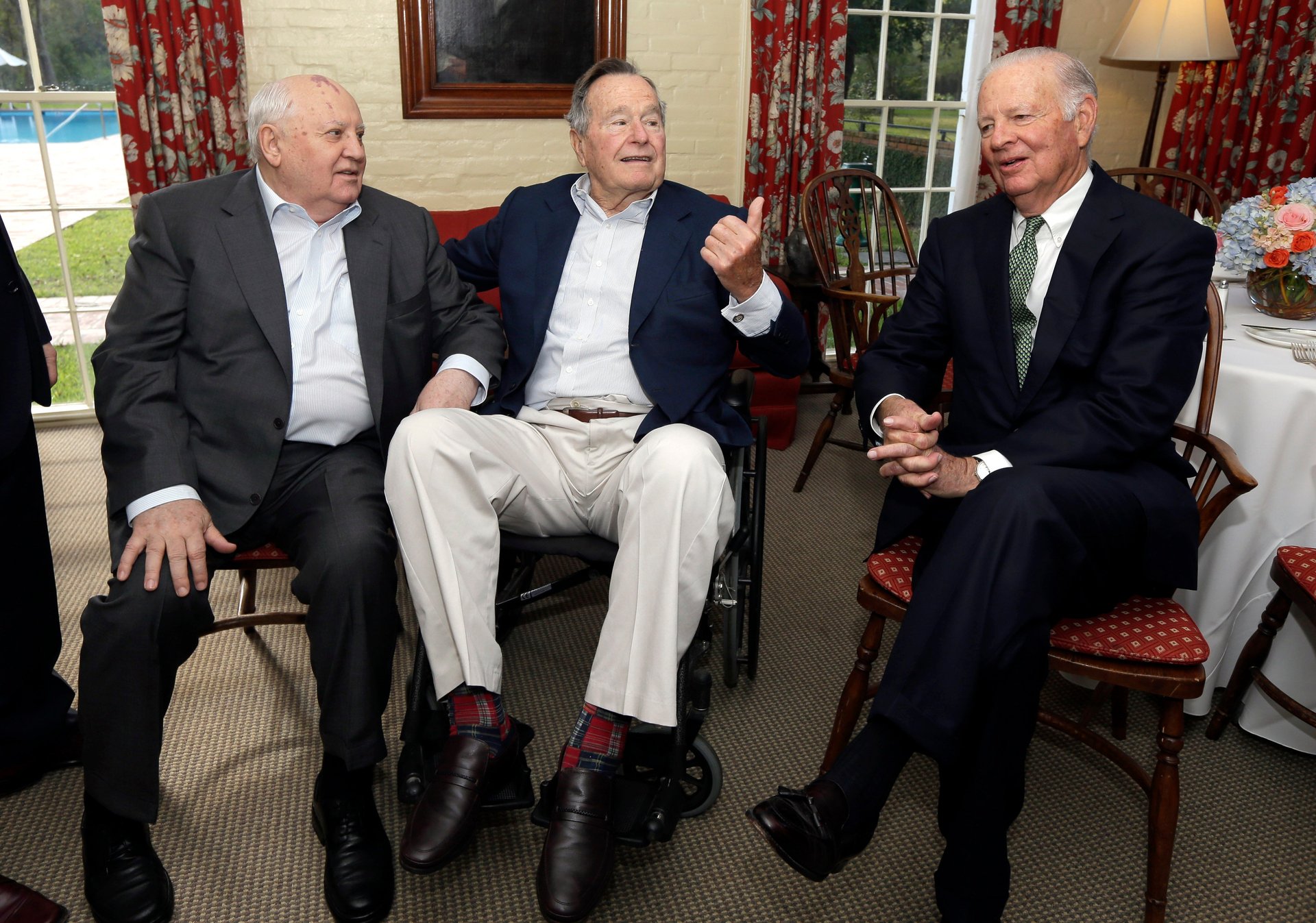Why George H.W. Bush will one day be seen as a seminal US president
Former President George H.W. Bush, a.k.a. “Bush One”, has a far more important legacy than most people give him credit for, says a leading US presidential scholar.


Former President George H.W. Bush, a.k.a. “Bush One”, has a far more important legacy than most people give him credit for, says a leading US presidential scholar.
What Bush achieved in his single-term presidency, from 1988 to 1992, became a subject of discussion this week as the 88-year-old recovers from a fever that has left him in intensive care in a Houston hospital. He has sprung back from a 34% approval rating leading up to his 1992 re-election defeat by Clinton. Still, he is still only vaguely recognized as an architect of two epochal events of the last quarter century—the Western response to the largely peaceful breakup of the Soviet Union, and the massive international retaliation against Saddam Hussein for his invasion of Kuwait. Republicans still vilify Bush for agreeing to higher income taxes as part of a 1990 budget deal with Democrats, and say his re-election defeat is a main reason why they reject tax increases now.
We asked Joseph Ellis, the Pulitzer Prize-winning authority on America’s founding fathers, for his assessment of Bush. He responded by email.
[Bush One] wrote me a lovely note once, asking me to sign a copy of His Excellency [Ellis’s biography of George Washington] for his presidential library, addressing me as Joe and saying that “old guys” like him could afford to assume familiarity, and that Barbara had this crazy idea his presidency would rank alongside GW’s [i.e., President George W. Bush, his son].
The two achievements that posterity will most celebrate are decisions that cost him a second term: first, the decision to violate his “read my lips” pledge and raise taxes; second, his decision not to pursue the Iraqi army to Baghdad. Like John Adams long before, Bush One embraced the long-term interest of the republic over his own political interests.
And although [then-Secretary of State] Jim Baker deserves the lion’s share of credit for orchestrating the international alliance in the Gulf War, I believe that history will record that Bush One formulated the strategy for American military policy in the post-Cold War era, namely, a multilateral rather than unilateral version of American hegemony. Bush Two and [Vice President Dick] Cheney abandoned that strategy, with disastrous consequences, and now Obama is returning to it, witness Libya and Syria. In retrospect, Bush One established the paradigm for American global leadership in the twenty-first century.
My fondest hope is that obituaries are premature, and that the “old guy” will remain among us for many years.
While treated today as a senior statesman, Bush senior has yet to fully reverse a two-decade-old image as an unflashy political wimp and a traitor to his party’s anti-tax principles. But a favorable reassessment would put him alongside former US presidents Harry Truman, who left office with a 22% approval rating but is now regarded as a great president; and Bill Clinton, who was impeached by opponents who today embrace him as a model of bipartisanship.